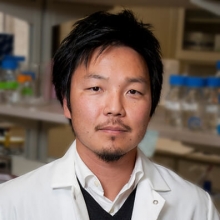BME Lecture Series: Shaun Lee, University of Notre Dame

Abstract: Bacteriocins are a large class of peptides produced by bacteria that encompass an enormous range of structure and function. Although bacteriocins have been historically investigated for their potential antimicrobial activities, recent efforts in genomics and natural product discovery have led to a tremendous increase in the sheer number and diversity of bacteriocins from the prokaryotic domain. It is our primary research goal to gain a better understanding of the mechanisms underlying bacteriocin production and function. Given their enormous diversity, studying these bacteriocins in the context of their role in human disease, as well as their functions in host commensalism and microbial competition, will offer tremendous potential for discovery of future therapeutic strategies.
Bio: Shaun Lee obtained dual bachelor's degrees from UC Berkeley in molecular cell biology and architecture and a doctorate in molecular microbiology and immunology from Oregon Health Sciences University. Lee completed postdoctoral training at UC San Diego in the Department of Pharmacology under the direction of Jack Dixon, and he is currently the Monahan Family Associate Professor in the Department of Biological Sciences at the University of Notre Dame. Lee’s research focuses on understanding the mechanisms behind bacteriocin production and its role in influencing microbial dynamics and host pathogenesis. His current studies are aimed at the discovery and use of novel bacteriocin candidates for use in therapeutics and on mechanistic studies of bacteriocins produced by pathogenic microorganisms in the context of host disease and immunity.
Share
Upcoming Events
-
MSE Special Seminar: Decarbonizing Industries for a Climate-resilient Future - From Renewable Energy to Sustainable Material Recovery
-
MAE 298 SEMINAR: Technology Developments for FIR Bolometric Detector Focal Plane Assemblies
-
CBE 298 Seminar: The Wisdom of the Crowd: Watching Bacterial Collectives (Re)shape Themselves
-
CEE Seminar: BIM and the Digital Twin
-
MSE Special Seminar: Revolutionizing Battery Technology - Engineering Quantum Materials for Enhanced Safety and Performance in Solid Electrolytes
